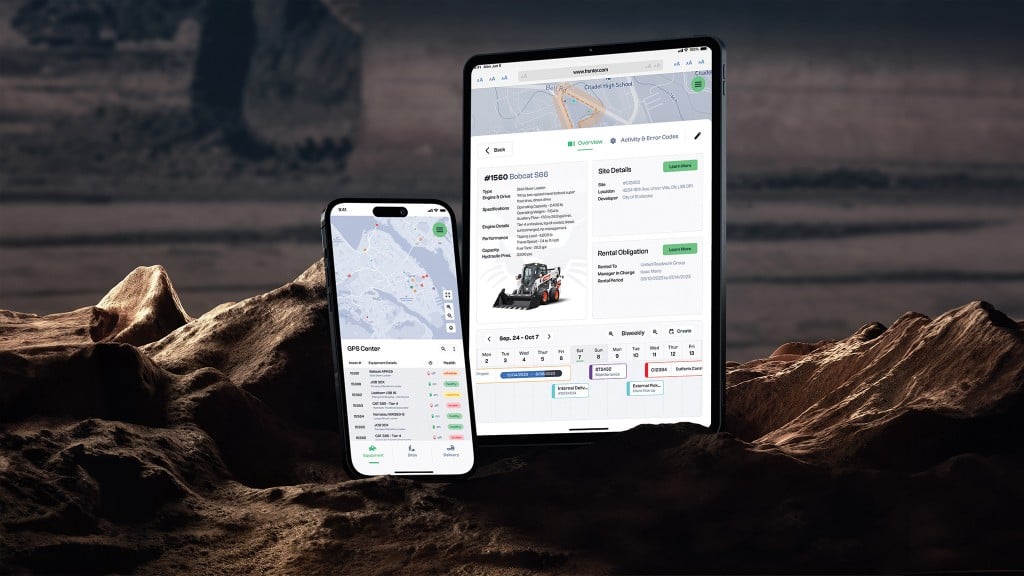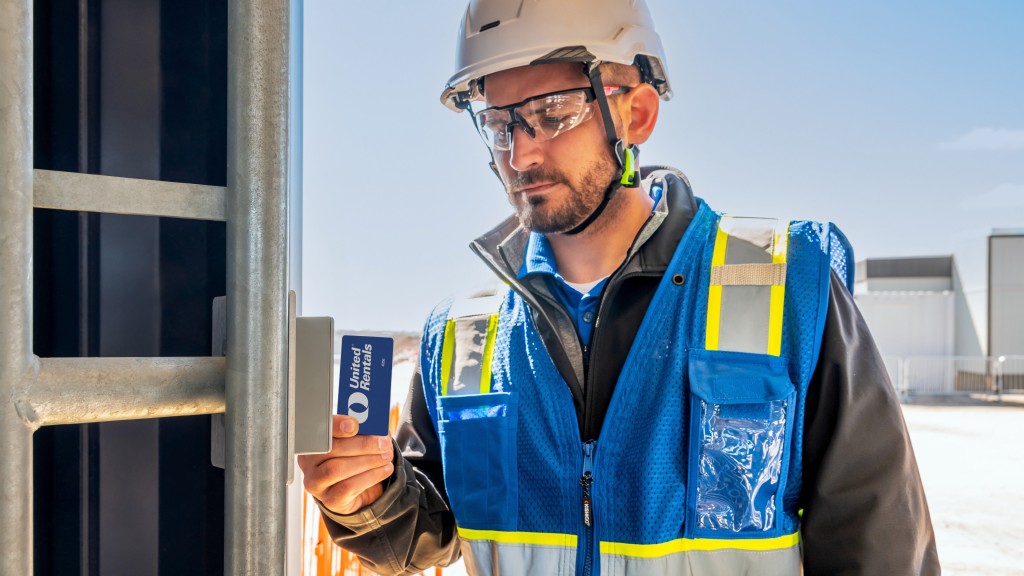Asset management startup develops custom solutions for construction fleets
Frenter aiming for future end-to-end equipment management platform

The entrepreneurial spirit is alive and well in Canada's construction sector, and Frenter is a prime example. The Halifax-based startup founded by teenage entrepreneur Zach Laberge is bringing new energy into asset management, working with its clients one-on-one to learn and grow as it develops new approaches to support construction fleets.
Frenter is taking advantage of its size to offer custom equipment tracking and monitoring solutions, with a long-term goal to provide an end-to-end platform that follows equipment from acquisition to eventual resale.
Frenter finds strength in rental and asset management
Laberge started Frenter in 2019 as a 14-year-old high school student, taking cues from the sharing economy to develop a peer-to-peer rental marketplace. As CEO, he brought on experts from the rental industry to help successfully grow the platform, but at the same time realized his initial approach needed to change.
"What we started to see was that the businesses were getting value from it as a way to market themselves and market their offerings to people," Laberge describes. "On the consumer side of things, it didn't really work - the consumer demand wasn't there, and generally people would just rent directly from the companies instead of going through us."
That realization drove Frenter's first pivot away from peer-to-peer and toward servicing rental businesses of all kinds, from party rentals to equipment. As that began to develop, the team had another realization: businesses weren't necessarily using e-commerce and website tools through the platform but were instead interested in inventory management.
"That's where we've focused on now – can we build the best inventory management asset tracking system, whether that is through us building it ourselves or through being a bridge between other existing systems," Laberge says.
The initial focus on general rental was narrowed down to heavy equipment based on simple economics, he adds.
"You can't charge thousands of dollars a year per unit for a piece of equipment that's a thousand dollars, so the unit economics just didn't work, and it doesn't make sense to GPS track a tent," Laberge says.
The $60 billion heavy equipment market in North America provided Frenter with a strong target and significant growth opportunities.
Laberge notes that fleet management tools for the trucking sector, both from manufacturers and aftermarket suppliers, have grown rapidly, and he intends Frenter to take inspiration from that success.
"I think we're seeing that shift in construction where adoption is taking place and these large companies are making big investments that trickle down to smaller companies," he says.
To that end, Frenter has expanded its target market from the rental sector to a broader reach, encompassing all heavy equipment fleet owners adopting asset management solutions.
The Frenter platform today is focused on GPS tracking and analytics, giving managers a snapshot of their equipment location, activity, and condition. Theft prevention, using emergency alerts and location information, is part of Frenter's offerings, as are logistics and optimization tools.
Staffing with a focus on heavy equipment expertise
Over the four years since its inception, Frenter has expanded to around 15 employees. Laberge says he appreciates those like Chief Revenue Officer Alex Mills, the first to join up, who were willing to work with a teenager and help guide the search for venture capital and other investments. The focus has been on finding the right people with expertise in heavy equipment rental who understand the space and can bring that knowledge to development of software and services.
"You can't teach someone what 20 years of experience looks like on the job site," Laberge says. "You can teach them the software side of things . . . but you can't teach experience."
As a growing startup, Frenter has a luxury many larger operations don't – it can work more closely with clients to understand their needs and adapt quickly as those needs change. Laberge's goal was to find a pilot group of customers who would provide important feedback about the product and shape future development. Businesses that have invested millions into their products over years don't have that opportunity.
"Now, as we start to look at other companies, we've already gotten the feedback, we've already had our product ripped apart and recreated, and I think that helps us be way more prepared," Laberge says. "When we launch with much larger fleets of hundreds or thousands of units going forward, we'll have a better understanding."
Being customizable early on benefits both customers and developers, but as Frenter grows, the goal is to produce a broad tool set that allows businesses to select the applications they need, while maintaining customizable data capture to fit the customer's requirements.
"Our data is fully customizable for the business – we can pull thousands of data types, but we'll give a dozen or a couple dozen that are key performance indicators," Laberge says. "On the data side of things, we're trying to be custom, and on the application side, it's more about pick and choose which systems and products you're looking for."
Data collection and analysis is the future for Frenter
As Frenter moves forward, data collection and analysis will be the key to development, Laberge says. Once the current services and solutions are fleshed out within the next year or two, focus will shift to the full supply chain, from purchase of new machines through management and maintenance to, eventually, resale and reinvestment.
There's also space for Frenter to support the industry with solutions that encourage more people to consider construction as a career – an important goal with the skills shortage looming. Laberge suggests that scholarships, educational opportunities, and tools that help interest and onboard new employees all have potential moving forward.
"It's building the ecosystem for the industry so we can keep supporting it and keep getting more people excited about it."



